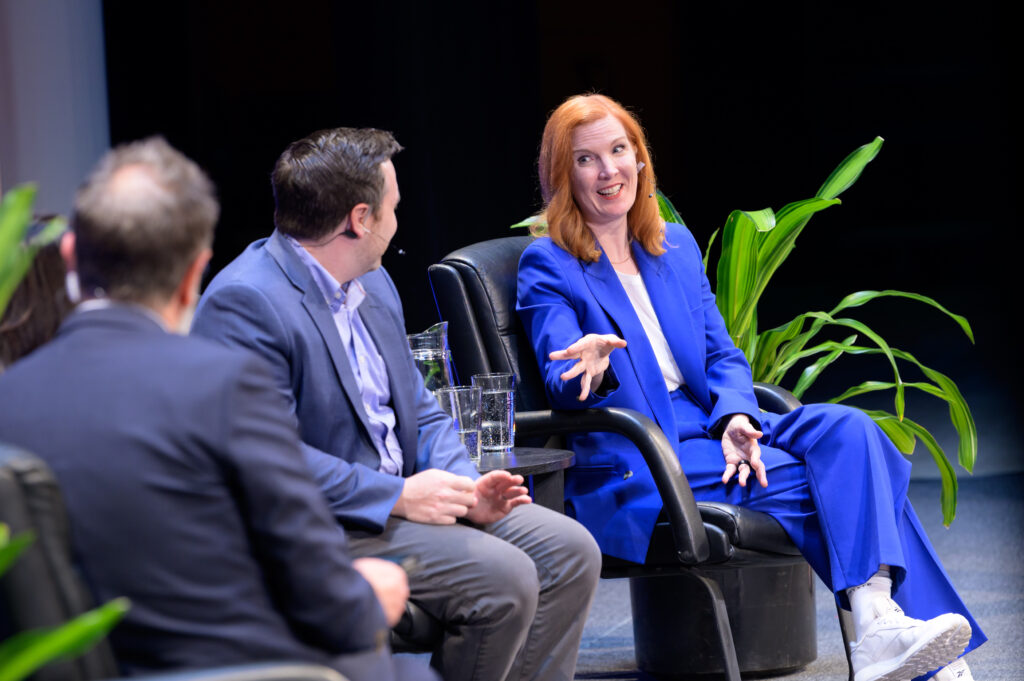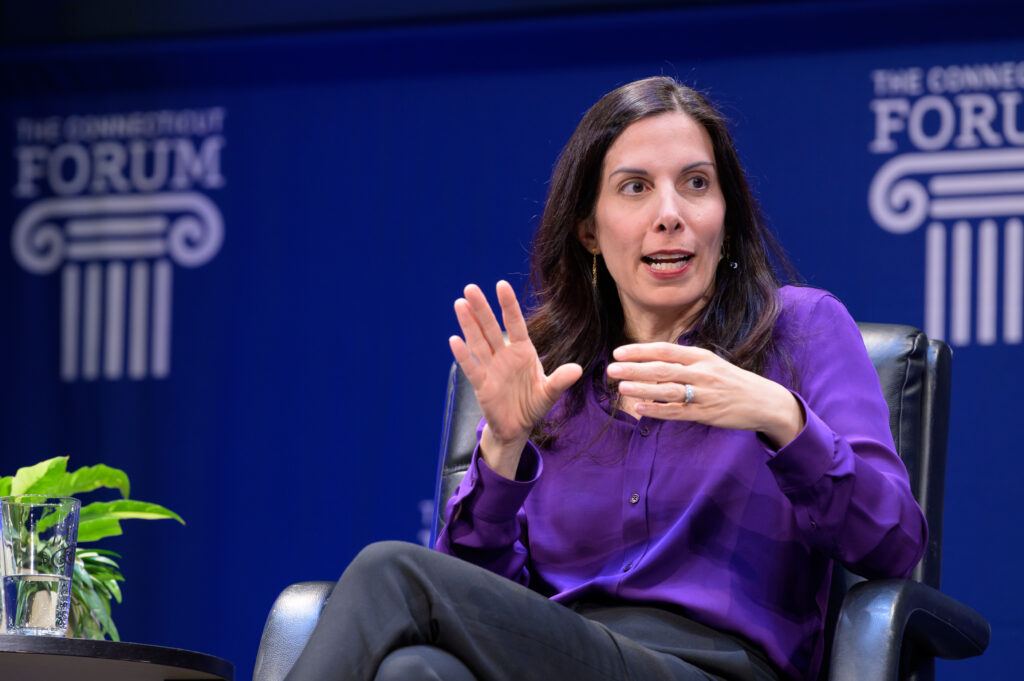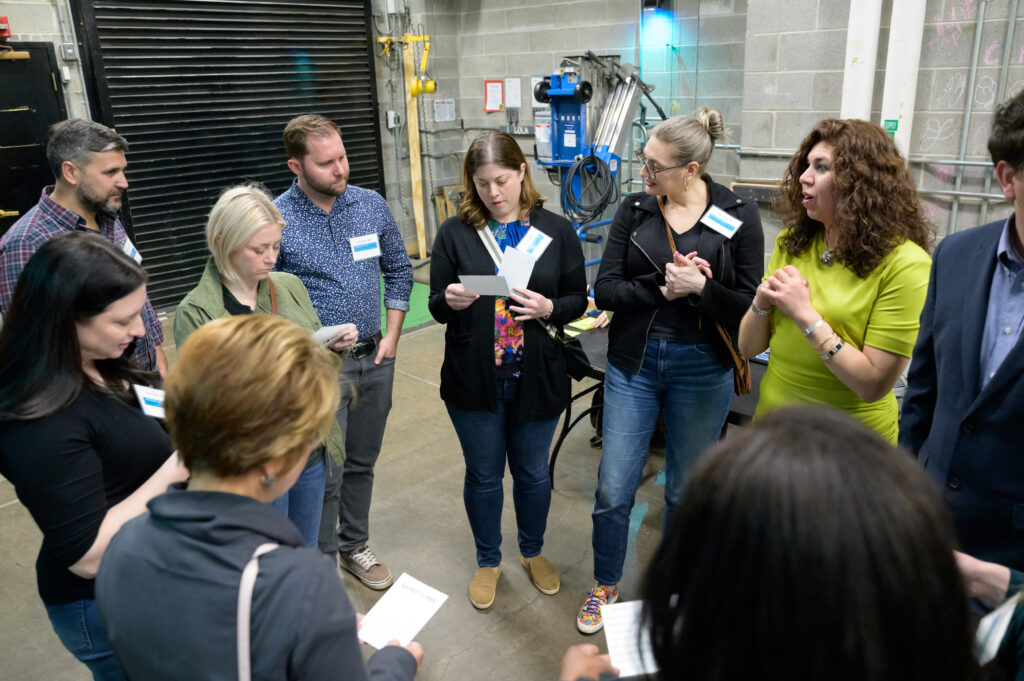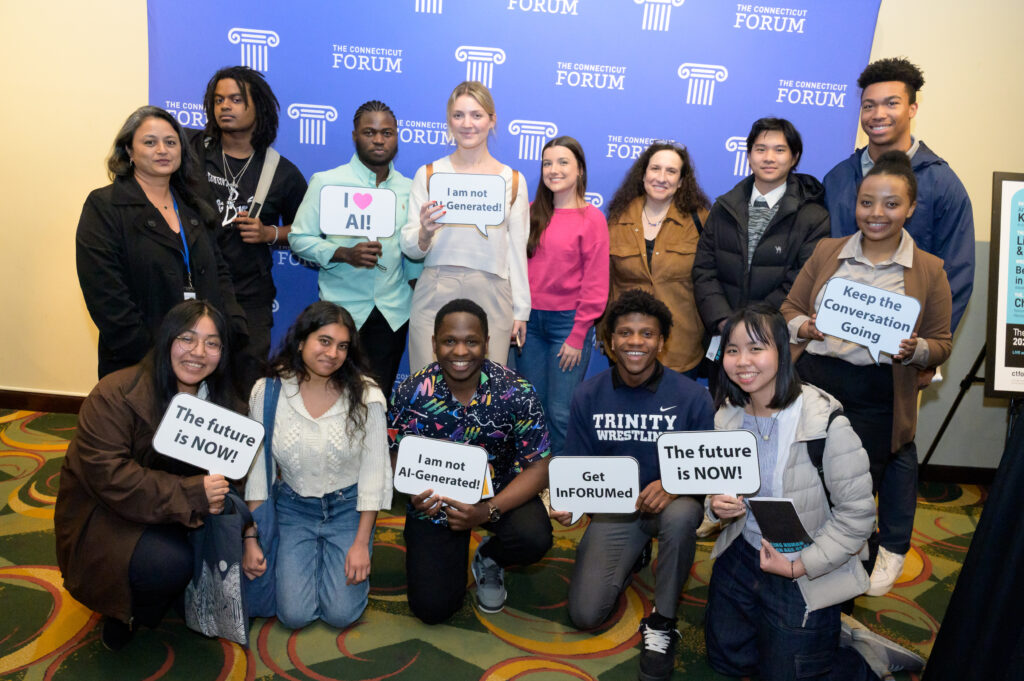Trinity Community Learns about Impacts of AI at the Connecticut Forum
A group of Trinity College students, faculty, and staff recently heard from experts on artificial intelligence at the Connecticut Forum discussion “Being Human in an Age of AI.” The panel on April 17 at The Bushnell Center for the Performing Arts featured AI scholar Kate Crawford, AI ethicist and neuroscientist Nita Farahany, and New York Times technology columnist and author Kevin Roose, and was moderated by John Dankosky, director of news and audio for NPR’s “Science Friday.”

Trinity is one of the several education partners of the Connecticut Forum. Members of the Trinity community—including students, faculty, and staff—have the opportunity to attend conversations about important issues with leaders in various industries. The Forum supports open dialogue, lifelong learning, and the free and active exchange of ideas.
The panelists shared various stories about how AI has influenced research in fields such as medicine and law. Roose spoke about how researchers in the medical field have been able to build models of proteins using AI technology. “Researchers used to spend their entire Ph.D. developing one protein. Now, you can do it with AI,” said Roose.
Roose continued to discuss the positive aspects of AI technology on society, and delved into its impacts on social relationships. He shared his unique experiences regarding making genuine connections with the artificial intelligence. “I was curious about [AI] as a social force,” he said. “I think the path to social use of AI will be much smoother than other forms. I want to have a world where AI encourages us to be better, not to be worse.”

The panelists also addressed the negative qualities of AI, as when Crawford brought attention to the invisible environmental and societal impacts of this technology. “Just to have a small interaction, it takes a large amount of energy, water, and hidden human labor,” said Crawford. “These are not artificial; these are real technologies that have a huge carbon footprint.”
Crawford explained what she saw as the neurological and psychological effects of AI, especially on education. “When using AI, you’re skipping a cognitive process and a social process,” said Crawford. “We see what we’re getting, but what are we losing?”

Farahany added, “We hold AI systems to a level of perfection that we don’t hold humans to. When you start to put it in high-stakes decision-making, it gets more and more dangerous.”
Alex Helberg, visiting assistant professor in Trinity’s Allan K. Smith Center for Writing and Rhetoric, attended the Forum after recently teaching the January Term course, “Writing and AI.” “It was one of the most level-headed and curative conversations I’ve heard about artificial intelligence since the dawn of ChatGPT and the current era of AI that we’re in,” said Helberg. “They had a very concise and clear way of distinguishing between what the current AI technologies out there actually do, whether or not we should be using the terms ‘artificial’ or ‘intelligence,’ and thinking through the real consequences and implications of the uptake of this kind of software in our society and our everyday life.”

Helberg’s J-Term class educated students on the impact AI technology has had on writing. In one assignment, students were instructed to write only using synthetically generated text, then asked to reflect on what they learned and on the impact of this technology on their own writing. “The central question of the course remains to what degree is this technology beneficial in our writing processes, and what are its constraints?” said Helberg. “One of the things that students took away was that this technology was preventing them from using their unique voice. They wanted to write in a way that still felt authentic to themselves.”
Enock Niyonkuru ’24, a computer science major who attended the event, said that it was fascinating to hear about how theoretical concepts from the classroom are being applied in real-world scenarios to transform lives. “The Forum played a critical role in demystifying AI and highlighting its dual impacts on society,” Niyonkuru said. “For the Trinity community, it should spark a dialogue on the ethical use of AI in enhancing daily work—not just as a task completion tool but as an integral, thoughtfully applied technology.”
Helberg added, “We need to have a more nuanced conversation about AI, not an oversimplified one. At Trinity, we really excel at being able to ask probing and critical questions about these media narratives and new technologies.”
The final Connecticut Forum of the season will be “Chefs! Top Chefs Dish on Food, Flavor, and Culture” on May 21, 2024.
